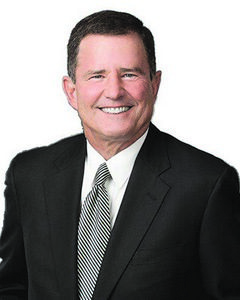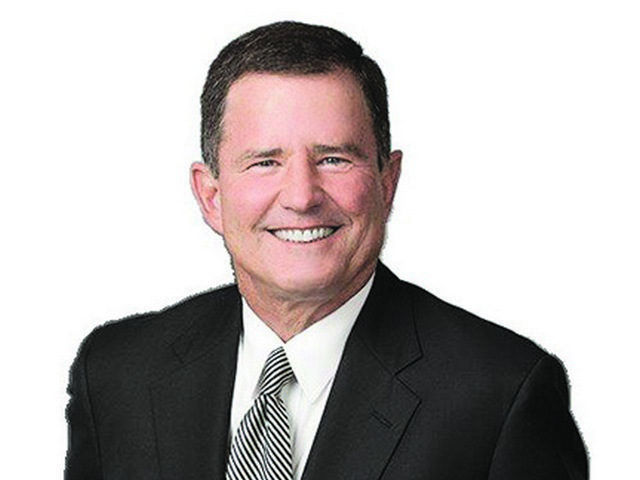
People love anniversaries. They help us to measure time and circumstance within our lifetimes.
They help us to organize ourselves and to remember days gone by. We typically talk about and celebrate the round-numbered anniversaries but, the particularly important ones are those on the quartile (i.e., 25, 50, 75). Soon, I will attend the 50-year reunion of the Miami High School Class of 1969. Half a century is a long time. A 50th anniversary of anything is at the outer limit
of those that most of us can expect to enjoy.
The only thing that each of the 1000-plus students in the MHS Class of ’69 had in common is that we went to the same high school together. We were a microcosm – an eclectic amalgamation of people and cultures. Many of us were children of the Greatest Generation, born and bred in the traditional, Southern, middle class, white neighborhoods of Mi-am-uh.
There were a few transplanted northeasterners and a very few black Americans but, the largest group in our class were those children brought to our neighborhood from Cuba as their parents fled Fidel Castro’s revolution. It was Father Knows Best meets Que Pasa, USA!
In the decade prior to our high school graduation, we experienced the assassinations of a president, his brother and a number of civil rights leaders; the forced resignation of a vice-president; the active exploration of space and men landing on the moon; a war on the other side of the planet costing the lives of more than 50,000 U.S. soldiers; widespread domestic civil and political unrest, protest and violence; desegregation of blacks and whites; and a genuine nuclear threat less than 100 miles from Florida. And yes, we had a U.S. President who was pardoned for crimes he committed for political purposes and whose closest advisors served prison terms.
In our teenage mind, we possessed all required knowledge and awareness about ourselves, the world and the secrets of success and happiness. Our views and perspectives were, as we saw things, unassailable. We had energy, ambition and an idealistic vision of the future, but we knew little about hard work, tragedy, disappointment and the stresses of life. And we had dreams: of prosperity, independence, love, children and happiness. But, we had no realistic understanding of whether or how we would be able to fulfill those dreams or, if we were able, at what cost.
Fifty years have gone by quickly, or so it now seems. Work, college, career, business, marriage, children, grandchildren, friendships, illness, aging parents, divorce, travel, success, failure and sometimes even calamity have boosted and battered us and they now enrich us with the lessons of experience and the wisdom of years
We now have many more memories than we have years left. We feel pride and a sense of accomplishment for the good things, along with regret and disappointment for those that did not go our way. There remain unfulfilled items on our bucket lists and our daily reading of the obituaries bring all-too-frequent recognition of friends lost and frequent reminders of our own mortality. We look back wistfully on what every generation calls “the good ol’ days,” remembering moments from our youth to be better than they were. And we yearn for the rebirth of seemingly-forgotten values that have been cast aside by our generation’s children.
But these circumstances of human relations and culture are no different than they were for previous generations. The big difference today is that current life expectancies give us an extra 20 years beyond those of the past.
So, life remains ours to shape and enjoy. Responsibility for our own lives as well as for our world and community should not be delegated or relinquished. For another couple of decades it IS us. We were the generation that fought for human rights, civil rights and peace – in Southeast Asia and the streets of our own country. In our youth, we proclaimed that we would do things differently. We would not accept any version of the “status quo” that was just not right. Let’s re-up on that promise. No matter what your individual circumstance, whether you are working or are retired, whether you have children and grandchildren close by or whether family gatherings require travelling, and no matter what your beliefs – political, religious or otherwise, you should engage, become involved, live, learn and teach others. But most importantly speak out.
The last part is important. A new protocol now pervades our society, affecting most human interactions. And it is contrary to the essence of our democracy. We now live in fear of speaking about politics and government. Regardless of the venue — the family dinner table, the office water cooler, Starbucks or a party — we are so afraid that we will trigger rejection of our point of view, if not a personal attack, that we choose to remain silent. We are discouraged from speaking because fact and reason have disappeared from our discourse. And too many of us feel that the values we learned as children, and spent lifetimes living by, have become irrelevant. Seemingly gone are integrity, honor, loyalty, sacrifice, respect and civility. And regardless of one’s political affiliations, there can be no doubt that these values are not being exemplified by our country’s current leadership.
No one should be silent in the face of an attack on the fundamentals of our society – free speech, free press and governmental transparency – a society that was built and defended by those who lived here, and those who came here wanting freedom. To be silent is to enable and embolden those espousing isolation, separation, superiority and bigotry. As Martin Luther King, Jr. said, “The ultimate tragedy is not the oppression and cruelty by the bad people, but the silence over that by the good people.”
We should speak out, not about what we oppose but, rather, what we favor. Conservatives, moderates and liberals surely agree that the actions of our leaders are best measured by their consistency with a never-ending commitment to human dignity. Even if, at this point in our history, we cannot build consensus on the end to be achieved, we should insist on high standards moderating the means to that end.
I believe that the vast majority of Americans reject the demeaning and disrespectful language and behavior that have apparently become the norm. Most people do not embrace the lack of empathy, if not utter condescension, to which many Americans, as well as our nation’s allies and their peoples, have been subjected. And it can never become tolerable, much less normal, for any leader to be able to consistently lie without serious consequence. So speak up loudly and stay engaged. Teach your children and grandchildren that there is a better way. And that the sustainability of their world will depend on pursuing and protecting that way.
Alan Rosenthal is a native Miamian, residing in Pinecrest. He is a practicing attorney and a partner in Carlton Fields’ National Trial Practice.






